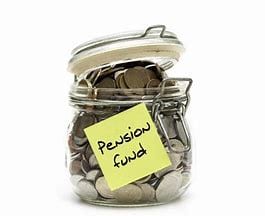What is a pension? Well, the Oxford Dictionary says a pension is:
‘A regular payment made during a person’s retirement from an investment fund to which that person or their employer has contributed during their working life.’
Sounds pretty straightforward so why are pensions seen as ‘difficult’ in family law matters?
The basic definition really does not do justice to the complex issues when looking at pension ‘pots’ built up during a marriage. As the definition says, a pension in an ‘investment fund’ so an investment fund will have a value and values of investments assets are looked at by a court considering sharing financial assets. The problem is, how to value a future investment asset.
It’s often said that comparing a pension pot to a bank account is like comparing apples to pears. They are both investments but very different types. The value of a pension is called a CE or Cash Equivalent value. (They used to be called CETV – Cash Equivalent Transfer Values- or CEV – Cash Equivalent Value).
There are lots of different types of pensions – private pensions where you pay in a set amount each month; final salary pensions based on your earnings; pensions where you pay contribution and so does your employer; pensions for the Armed Forces; pensions that have life insurance tucked in them; pensions that have a retirement age earlier than the usual State Pension age; pensions with a guaranteed minimum benefit; pensions that give a lump sum; the more unusual SIPP or SASS pensions……
Pensions can be difficult to value but they can also be very valuable assets, often exceeding the value of the family home. Although they can be difficult to understand, failing to try to understand them can be a very expensive mistake indeed. In a significant number of cases, an expert report is needed to advise on how pensions should be shared. The investments themselves are complicated – but the pension on divorce expert report (a PODE report) can be vital to make sure that pensions are fairly dealt with. Looking at a basic CE figure for a pension can give a really misleading picture of the value of a pension.
An example given recently at a seminar I attended is a good illustration.
Husband and wife are both aged 40. There is only the family home worth £150,000 and the husband’s Armed Forces Pension with a CE of £144,650.00. Looks pretty straightforward to say wife has the house, husband has his pension.
However, when you look more closely at the Armed Forces Pension, the husband would have a lump sum of £30,000 and a preserved pension of £10,000 per annum at age 60. The cost to buy something similar on the open market would be £223,000 – so that is the true value of the Armed Forces Pension. £150,000 for the house versus £223,000 for the pension does not seem so fair.
Going on further though, if the husband had 21 years army service, next year he would have 22 years army service which would mean his Armed Forces Pension could be paid straightaway and he would not have to wait until he is age 60. That affects the CE of the Armed Forces pension and now to buy something similar on the open market would cost over £500,000. So now you are comparing the family home worth £150,000 and the Army Pension of £500,000. Doesn’t look like such a good trade now does it?
NHS pensions, Armed Forces, police, fire, civil service, bank final salary schemes – all are know to be complex and need a closer look to be able to deal with them fairly.
It is very easy to dismiss the pensions because they are ‘difficult’ to understand or because they are not as immediate as a bank account. If you decide that you do not want to share the pensions or you want to do something different, that is fine but at least make that decision with good information about the actual value of what you are trading away.
This is particularly an issue for women, according to data collected by Age Concern and the Fawcett Society (which campaigns for equality for women) found that on average, women who are part of a couple receive just 32p for each £1.00 in pension the husband gets.
A link to the main points of the report is here:
https://www.ageuk.org.uk/latest-press/articles/2018/september/women-losing-out-on-money-in-divorce/
Please don’t overlook the pensions and your income in retirement. Can we help guide you through the complexities? Contact us!

